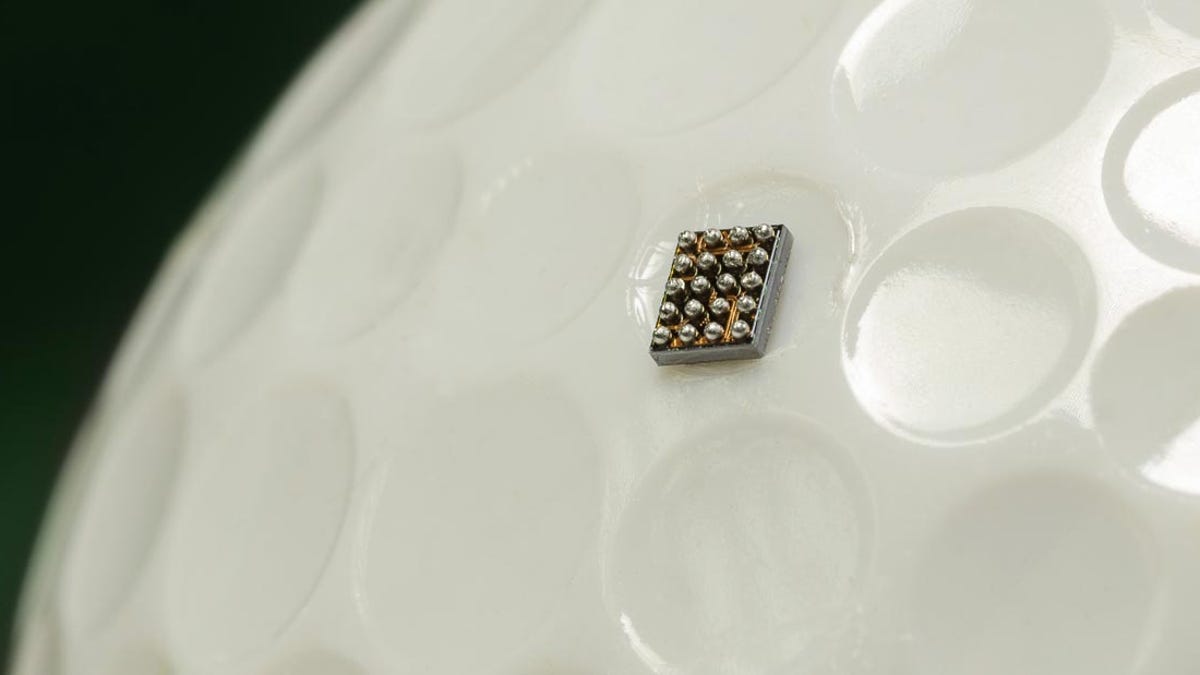Freescale's Internet-of-things controller chip cut down to size
Need an electronic brain for your keychain computer? Freescale's KL03, half the size of a golf ball dimple and costing 75 cents, might be just the thing.

BARCELONA, Spain -- Freescale Semiconductor, a maker of small processors called microcontrollers, has a tinier new one it hopes will help companies jump aboard the "Internet of things" bandwagon.
The microchips used in computers cost tens, hundreds, and sometimes thousands of dollars. But the Kinetis KL03 is an entirely different class for devices that aren't nearly so big and brawny: it measures just 1.6x2.0mm and costs 75 cents -- for customers buying them 100,000 at a time.
The 48MHz chip is 15 percent smaller than the earlier KL02, the company said. It's just right for something like a car key that could tell a person how much fuel the car has, but Freescale also expects to sell it for use in mobile devices, portable medical equipment, cars, and appliances.
Its size makes Freescale's chip "the world's smallest ARM-based microcontroller," the company said. ARM licenses chip designs to many manufacturers, an approach that simplifies programming because software more likely can be reused to reach different devices.
Freescale announced the ship at the Embedded World Conference show in Nuremburg, Germany, but the "Internet of things" is a big deal at the Mobile World Congress show here, too. The mobile show focuses primarily on mobile phones, but is expanding to connected cars, homes, city infrastructure, wearable computing devices, and other domains as electronic brains and network connections spread ever farther.
The KL03 is designed to work in very low-power devices that need less than 2KB of memory, Freescale said. The KL02 is designed for somewhat more powerful devices with more RAM.
The KL03 also includes 32KB of flash memory and 2KB of RAM. Freescale will release samples next month and plans to reach full production in June.

